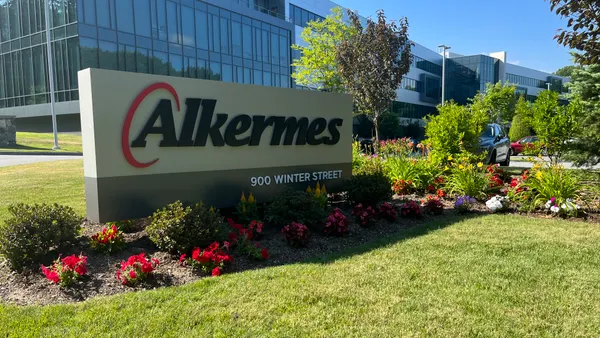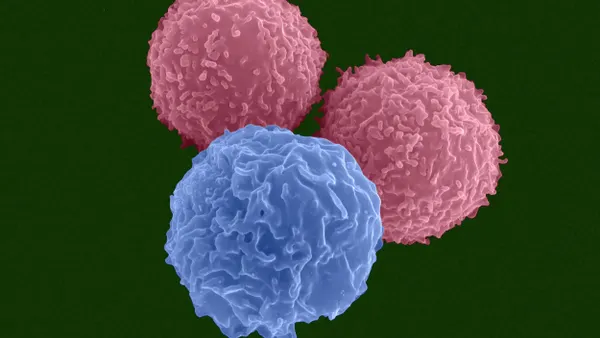Dive Brief:
- Wugen said Wednesday that it brought in $115 million in a new financing round that will help the company advance an “off-the-shelf” CAR-T therapy.
- Fidelity Management & Research led the financing, which involved more than a half dozen other firms including RiverVest Venture Partners, Lightchain Capital, Abingworth and Tybourne Capital Management. Abingworth and Tybourne led a Series B financing four years ago that raised $172 million for Wugen.
- The St.-Louis based biotech plans to use the funds to advance WU-CART-007 as a treatment for relapsed or refractory T-cell acute lymphoblastic leukemia and T-cell lymphoblastic lymphoma. Wugen aims to file an application for approval of the experimental therapy in 2027 if it succeeds in an ongoing pivotal trial.
Dive Insight:
Wugen aims to make WU-CART-007 the first off-the-shelf CAR-T therapy for T-cell malignancies. Unlike CAR-T treatments that are made from a patient’s own cells in a process that involves extraction, manipulation in a lab and re-injection, Wugen’s therapy uses donor cells so that it can be used for any qualified patient.
The idea is enticing and has drawn interest from investors and major drugmakers. Last year, Roche agreed to pay about $1 billion to buy San Diego-based Poseida Therapeutics, which specializes in off-the-shelf, or allogeneic, cell therapy.
Wugen’s therapy showed promise in a Phase 1/2 trial, achieving an overall response rate of 91% and a complete remission rate of 73% in patients who had already tried a number of other therapies. The goal is to offer a “potentially curative option,” Chief Medical Officer Cherry Thomas said in the company’s statement Wednesday. Thomas joined Wugen late last year.
While an off-the-shelf option offers a more convenient alternative to standard CAR-T therapies, other companies are focusing on the possibility of giving patients therapies that rewire cells in the body, rather than in the lab. The last six months has seen a flurry of investment in this “in vivo” technology, from companies including AstraZeneca, AbbVie and Gilead.
Drugmakers are also pursuing the idea of using cell therapy to treat autoimmune disease.












